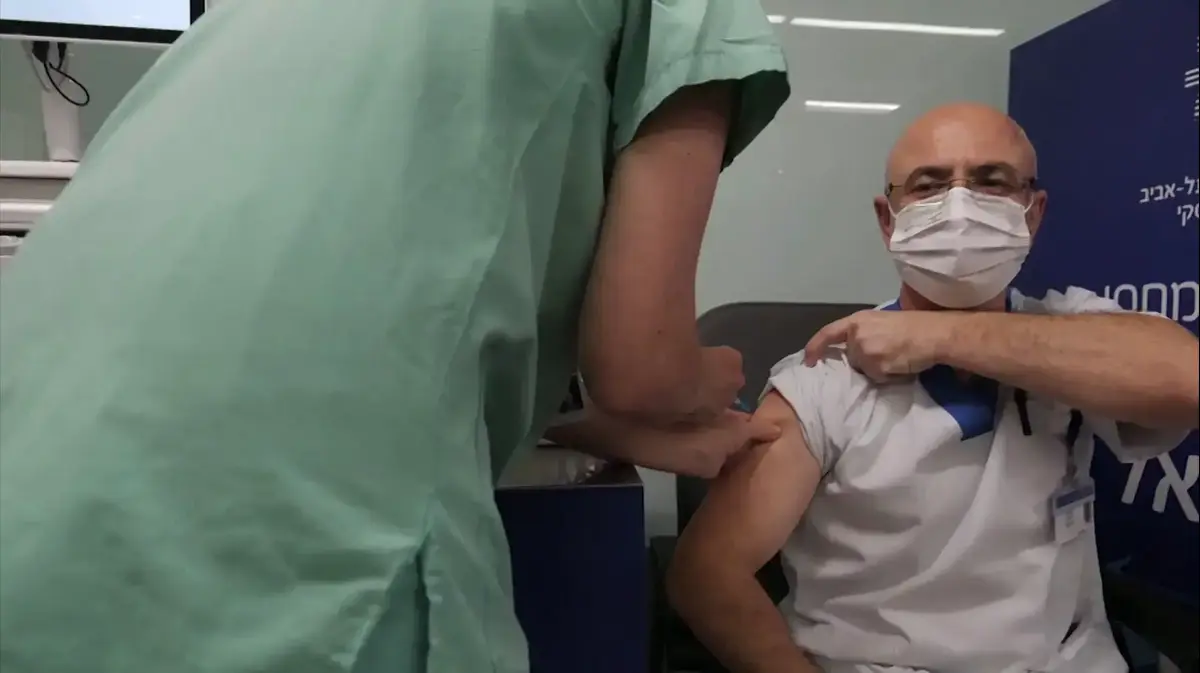Icon: enlarge
Chancellor Angela Merkel, Berlin's Governing Mayor Michael Müller and Bavaria's Prime Minister Markus Söder: Swipe at Brussels
Photo: HANNIBAL HANSCHKE / REUTERS
The short-term announcement by the pharmaceutical companies Pfizer and Biontech that they would temporarily reduce the supply of corona vaccines has not only angered several EU countries.
It also leads to new tensions between the German government and the EU Commission.
The resolutions of the federal and state governments to fight the coronavirus published on Tuesday evening contain a sharp accusation to the commission: "Unexpected and much too short-term" the EU authority under Ursula von der Leyen would have forwarded the information about the bottleneck at Pfizer and Biontech to Germany .
The passage caused irritation in Brussels.
The Commission rejects the accusation from Berlin of having informed the Member States too slowly.
It was not until Friday morning that the delivery failures were found out and the EU countries were informed in a video conference that same afternoon, according to the Commission.
In addition, Ursula von der Leyen telephoned Pfizer management from Lisbon and immediately announced the result - the full delivery of the vaccine quantity promised for the first quarter - at a press conference.
The Federal Ministry of Health (BMG) also confirms on request that the EU Commission only found out about the delivery bottleneck on Friday and informed the Federal Government immediately.
Health Minister Jens Spahn then drummed up his colleagues in the countries for a conference call.
Among the participants there was also a representative from Biontech - to whom the federal and state governments promptly made clear "their great regret" about the situation.
Immediately after this conference call, the video switch between the EU Commission and the representatives of the member states took place, according to the BMG.
So what's the problem?
Anger over Pfizer's behavior
Why the attack on the Commission in Tuesday's Corona resolutions?
In the past few weeks, the German government has always defended the Brussels strategy for purchasing vaccines.
Criticism was therefore rejected "vaccination nationalism".
Against this background, the passage in the Bund-Länder paper is surprisingly sharp and for the first time shows cracks in the previously closed front between Germany and the EU.
As a statement, Spahn's spokesman said that they were dissatisfied that the EU Commission did not provide any new information about the bottleneck with the member states in its video link on Friday afternoon.
That would have been difficult, however, as the BMG spokesman himself has to admit: Pfizer and Biontech only announced on Monday how exactly the decline in production was affecting delivery quantities.
In their anger at Pfizer and Biontech, the federal government, the federal states and the EU Commission still seem to be very united.
The “short-term communication” by the pharmaceutical companies and the reduction in the scope of delivery led to “massive problems for the member states,” explained the BMG spokesman.
On Wednesday, Spahn added: The problem was Pfizer's short-term announcement, said the CDU politician.
"It is very, very unsatisfactory that this was decided overnight and, well, communicated to us," said Spahn.
Another possible explanation for the unfriendly passage about the EU Commission in the decision paper is the friction between the federal government and the federal states on the subject of vaccination - and possibly the desire to temporarily close one's own ranks by looking for blame in Brussels.
The dispute over the vaccination strategy between the federal and state governments has been smoldering since the first poke.
The blame for the bumpy vaccination start Spahn and the Prime Minister countries assign to each other.
According to an agreement, the federal states are responsible for the invitation management and the local vaccination centers, while the federal government is responsible for the procurement of the vaccine.
Purchasing, in turn, ran jointly at European level.
For days, Mecklenburg-Western Pomerania's Prime Minister Manuela Schwesig has been uttering interviews: "There is no vaccination chaos on site, things are going well on site." What is missing is the vaccine.
Berlin's governing mayor Michael Müller also calls for more »reliability« in planning.
And Bavaria's Prime Minister Markus Söder states: "It's not going well." Overall, there is still too little vaccine.
"If the promised vaccine then fails and appointments that were difficult to find at first have to be canceled, then that doesn't make a very good impression."
It was only on Monday that Spahn tried again to calm the countries down by sending them tables with new Biontech delivery schedules.
The signal: it's not going to be as bad as feared.
Because of the renovation work in the bottling plant in Puurs, Belgium, fewer vaccination doses than planned will be delivered in the coming week, 485,550 instead of the planned 667,875 doses.
But the countries would receive far more vaccine than planned this week.
And from the beginning of February, the delivery quantity will be "constantly above plan" - also because in future six instead of five cans can be drawn from one ampoule.
Icon: The mirror














/cloudfront-eu-central-1.images.arcpublishing.com/prisa/EXJQILQR5QI7OMVRTERD7AEZAU.jpg)